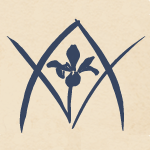The Story of the Three Sisters
Corn, beans and squash are three of the most important plants to Indigenous peoples throughout North America. They are called "the three sisters" by Iroquoian Tribal Nations like the Meherrin Nation of North Carolina.
Stands Among Elk (Meherrin Nation) tells the story of how his people received corns, beans and squash and how they became known as "the three sisters."
Have you heard about the three sisters before? Did you hear any similarities in Stands Among Elk's story?
Indigenous Land Relationships in the Carolinas: An Interactive Audio Tour
This tour features short audio recordings of Indigenous people telling their own stories connected to their relationship with the land. It was created by Quinn Smith (Chickasaw Nation, Chocktaw, Duke University's Trinity College Class of 2023) through Duke Gardens' Equity Through Stories Program.
Links to the rest of the tour pages are below; click to go to the previous or next tour pages, or click on any of the individual tour page titles. Tour pages can be visited in any order.
< GO TO THE PREVIOUS TOUR PAGE
GO TO THE NEXT TOUR PAGE >
Jump to another point in the tour:
- Indigenous Land Relationships in the Carolinas: An Interactive Audio Tour
- Common Misconceptions
- What is Nature?
- The Meherrin’s Medicines
- The Four Sacred Herbs
- Indigenous Medicinal Plants
- Pine Needle Art: Vickie’s Story
- Who Owns Seeds?
- Birdsongs
- Listen to the World Speak
- Indigenous Fire Practices
- How to Support Indigenous Peoples
- The Story of the White Corn
- Why the Leaves Change Color
- Growing up in Hillsborough, 1940s
- Rethinking Traditional Plants
About Quinn Smith, Jr.

Quinn is a citizen of the Chickasaw Nation, majoring in public policy with a documentary studies certificate. As a documentarian, Quinn strives to challenge our misconceptions of Indigenous people by documenting a long-silenced, shared humanity.
What drew Quinn to the Equity through Stories Program was the ability to uplift Indigenous truths and to forge reciprocal relationships with Indigenous people throughout the Carolinas. Quinn does this by interviewing Indigenous people about their relationships with the land and weaving their stories into audio documentaries to be exhibited at the Blomquist Garden of Native Plants. He also initiates seed-sharing and other reciprocal ventures between Indigenous peoples and Blomquist Gardens. Quinn hopes that his work will help to re-educate Duke Garden’s 500,000+ annual visitors and to create a healing space for Indigenous people.





